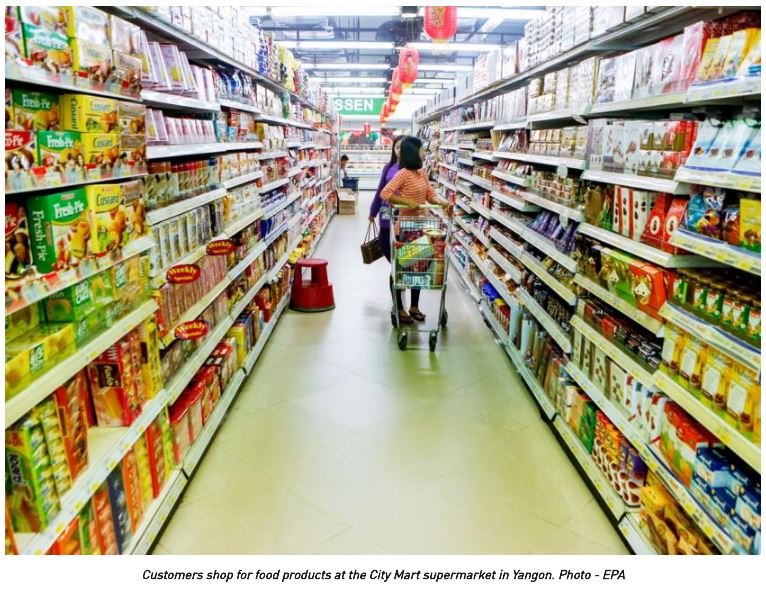Myanmar: New retail directive well-received, but raises unanswered questions
Myanmar has taken pains to liberalise its economy and draw foreign investors to become more competitive. Over the past two years, it has rolled out major new legislation including the Condominium Law, Investment Law and Companies Law.
This year, it released two new directives opening up the education and retail sectors to full foreign ownership, marking major steps away from the previous protectionist system which restricted foreign access to the two sectors.
Yet, the authorities appear to be having trouble enforcing the slew of new laws. Take the Companies Law, for instance. After the new piece of legislation was officially signed by the president in December last year, it was subsequently announced that the rules and regulations would take an additional eight months to enforce.
Things are no different with Notification 25/2018, which authorises 100 percent foreign-owned companies as well as joint ventures between international and domestic investors to carry out retail and wholesale businesses in the country, announced on May 9.
Under the new rules, 100pc foreign-owned firms must make initial investments of US$3 million and $5 million to operate a retail or wholesale business, respectively, in Myanmar. Meanwhile, for joint ventures with foreigners where the local investor has at least a 20pc equity ratio, the initial investments necessary for retail and wholesale are $700,000 and $2 million, respectively.
Unanswered questions
Despite the positive development though, the authorities have yet to sort out important details involving the required initial investments.
“Do you bring in $5 million worth of goods straight away or over a period of time? Do goods ordered but yet to be delivered count as part of the initial investment? Are the goods valued at cost or point of sale?
“These are the questions we have been asked by clients and are now posing to the Ministry of Commerce [MOC],” said U Minn Naing Oo, managing director of Allen & Gledhill Myanmar, during an update session on the directive organised by the India Myanmar Chamber of Commerce last week.
“The ministry is now considering these issues and we are not sure of the details yet. We are discussing this and will come up with guidelines to sort out the details in due course,” said Daw Cho Thet Mu, director at the Department of Trade under the MOC.
At the session, Daw Cho Thet Mu confirmed that foreign businesses and JVs are not allowed to operate mini-markets, convenience stores and any retail distribution premises where the floor area is smaller than 929 sq m, or 10,000 sq ft. This includes the retailing of a single brand within a shopping mall. Meanwhile, retailers that wish to expand beyond a single premise must reapply for MOC permission.
She also confirmed that the buying and selling of agricultural commodities is permitted, including for re-export purposes, as long as the commodity is included under a list of 32 commodities permitted for exports, which was issued by the ministry earlier this year.
Well-received
Despite the setbacks, the new directive appears to have been well-received by the industry so far.
“Myanmar opening up the sector for foreign retailers and wholesalers is great for consumers, who will now have more choices and enjoy more competitive prices. They will be able to choose good quality products,” said U Zaw Min Win, President of the Union Myanmar Federation Chamber of Commerce.
“In fact, we have been trying to open this sector since about six years ago. We welcome the development now that it has happened,” he added.
City Mart Holding Co, one of the country’s largest retailers, said it had been expecting Notification 25/2018. While lauding the move, the supermarket chain nevertheless said it’s “extremely disappointed” over “burdensome” rules requiring it to register as a local retailer with the MOC, given that its capital exceeds $700,000.
“We hope that this rule can be changed or clarified such that it does not apply to Myanmar retailers and wholesalers which are already operating,” said Daw Hninn Lae Wai, a marketing executive at City Mart.
“Myanmar companies which are already engaged in the business and with more than $700,000 in capital have 150 days to register with the MOC. This is to ensure there is proper registry of the larger players in the sector,” U Min Naing Oo explained.
Daw Hninn Lae Wai added “there are no specific regulations to ensure that foreign retailers and wholesalers are selling a certain ratio of Myanmar products. This could harm local businesses if foreign investors procure their products mainly from overseas.”
“The government should encourage foreign investment in areas that require a large capital commitment that cannot be satisfied by local investors,” she said.
Source: https://www.mmtimes.com/news/new-retail-directive-well-received-raises-unanswered-questions.html


 Thailand
Thailand




